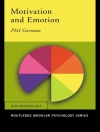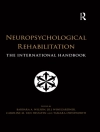This handbook discusses the latest findings from different fields of positive psychology from a global perspective by providing a coherent framework to get a better understanding of the development and practice of positive psychology. It starts with the parameters of positive psychology and a summary of the historical rise of positive psychology (both first wave and second wave of positive psychology) in the US, and its slow but steady growth on a global scale. This handbook highlights the major contributions of positive psychologists across 17 major regions of the world on theory, research, assessment and Practice. It discusses how positive psychology can progress human living in different countries and it shows the reasons why positive psychology has become an important source in research and education around the world.
Tabela de Conteúdo
Chapter 1. The Making of a Global Positive Science of Human Existence: From Appreciating Existential Foundations to Identifying WEIRD Research Trends (Edward C. Chang).- Chapter 2. Region of Upper North America (United States and Canada) (Paul T. P. Wong).- Chapter 3. Region of Mexico and Central America (Belize, Costa Rica, El Salvador, Guatemala, Honduras, Mexico, Nicaragua and Panama) (Margarita Tarragona).- Chapter 4. Region of South America (Argentina, Brazil, Chile, Colombia, Uruguay, and Venezuela) (María Elena Garassini).- Chapter 5. Region of the United Kingdom (England, Wales, Scotland and Northern Ireland) and Ireland (Ilona Boniwell).- Chapter 6. Region of Northern Europe (Denmark, Finland, Iceland, Norway, and Sweden) (Karolina Aleksandra Ścigała).- Chapter 7. Region of Western Europe (Austria, Belgium, France, Germany, the Netherlands, and Switzerland) (Claudia Harzer).- Chapter 8. Region of Southern Europe (Greece, Italy, Portugal and Spain) (Chiara Ruini).- Chapter 9. Region of Eastern Europe (Croatia, Czech Republic, Hungary, and Turkey) (Ingrid Brdar).- Chapter 10. Region of Russia (Dmitry Leontiev).- Chapter 11. Region of Sub-Saharan Africa (Ghana, Kenya, Namibia, Nigeria, South Africa, Tanzania, Zambia, and Zimbabwe) (Angelina Wilson).- Chapter 12. Region of the Arab World (Algeria, Bahrain, Egypt, Iraq, Jordan, Kuwait, Lebanon, Libya, Morocco, Oman, Palestine, Qatar, Saudi Arabia, Syria, Tunisia, United Arab Emirates, and Yemen) (Habib Tiliouine).- Chapter 13. Region of Israel (Anat Shoshani).- Chapter 14. Region of South Asia (Afghanistan, Bangladesh, Bhutan, India, Maldives, Nepal, Pakistan, and Sri Lanka) (Girishwar Misra).- Chapter 15. Region of Southeast Asia (Brunei, Cambodia, Indonesia, Laos, Malaysia, Myanmar, Philippines, Singapore, Thailand, Vietnam, and Timor-Leste) (Weiting Ng).- Chapter 16. Region of East Asia (Mainland China and Taiwan) (Hongfei Yang).- Chapter 17. Region of East Asia (Japan and South Korea) (Christopher A. Sink).- Chapter 18. Region of the Pacific Rim (Australia and New Zealand) (Yilma Woldgabreal).- Chapter 19. A Final Reappraisal: Do We Really Need to Develop Positive Psychology Around the World? (Christina A. Downey).
Sobre o autor
Edward C. Chang is a Professor of Psychology and Social Work, and a Faculty Associate in Asian/Pacific Islander American Studies, at the University of Michigan, Ann Arbor. He is a Fellow of the Asian American Psychological Association. Dr. Chang received his B.A. in psychology and philosophy from the State University of New York at Buffalo, and his M.A. and Ph.D. degrees from the State University of New York at Stony Brook. He completed his APA accredited clinical internship at Bellevue Hospital Center-New York University Medical Center. Dr. Chang has published more than 200 works on optimism and pessimism, perfectionism, social problem solving, and cultural influences on behavior. He is the editor of Optimism and Pessimism: Implications for Theory, Research, and Practice (2001), Self-Criticism and Self-Enhancement: Theory, Research, and Clinical Implications (2006), Handbook of Adult Psychopathology in Asians: Diagnosis, Etiology, and Treatment (2012), and is a co-editor of Virtue, Vice, and Personality: The Complexity of Behavior (2003), Social Problem Solving: Theory, Research, and Training (2004), Judgments Over Time: The Interplay of Thoughts, Feelings, and Behaviors (2006), Handbook of Race and Development in Mental Health (2012), Positive Psychology in Racial and Ethnic Minority Groups (2016), Treating Depression, Anxiety, and Stress in Ethnic and Racial Groups: Cognitive Behavioral Approaches (2018), and A Positive Psychological Approach to Suicide: Theory, Research, and Prevention (2019). Apart from other honors and awards, Dr. Chang was the recipient of the 2019 Stanley Sue Award for Distinguished Contributions to Diversity in Clinical Psychology sponsored by the Society of Clinical Psychology.
Christina A. Downey is Associate Vice Chancellor for Academic Affairs and Student Success, and Professor of Psychology at Indiana University Kokomo. She received her B.A. in Psychology from Purdue University in West Lafayette, IN, and her M.S. and Ph.D. in Clinical Psychology from the University of Michigan, Ann Arbor. Dr. Downey completed her APA-accredited clinical internship at the University of Michigan Center for the Child and Family, and the University of Michigan Psychological Clinic. Dr. Downey has published articles on various topics related to lay concepts of health, eating disorder symptoms and perfectionism, perceptions of online versus face-to-face social interactions, and effective college teaching methods in journals such as Eating Behaviors, Psychology and Health, the Scandinavian Journal of Psychology, and the Journal of Effective Teaching. She also serves on the Editorial Board of Cognitive Therapy and Research. She was co-editor of the Handbook of Race and Development in Mental Health (2012), Positive Psychology in Racial and Ethnic Minority Groups (2016), and Treating Depression, Anxiety, and Stress in Ethnic and Racial Groups: Cognitive Behavioral Approaches (2018), with Dr. Chang, and has published several chapters on racial and ethnic factors in positive and negative mental health.
Hongfei Yang is Associate Professor of Psychology at Zhejiang University of China, P. R.. He received his B.A. in Psychology from Hangzhou University in China, P. R., and his M.S. in Counseling Services at State University of New York at Oswego in the United States of America, and his Ph.D. in Basic Psychology from Zhejiang University of China, P. R.. Dr. Yang spent 8 months as a visiting scholar in the Department of Psychology of Kiel University, working with Dr. Grau who is the founder of Kiel-Meyn Counseling Model. He also spent 4 months as a visiting scholar in the Department of Psychology at the State University of Illinois at Champaign, working closely with Dr. Ed Diener, who is the leading researcher of subjective well-being. Dr. Yang is the president of the association of counseling psychology of Zhejiang Psychology Society.Dr. Yang has published articles on various topics related to mental health, outcome assessment of counseling, life satisfaction, personal growth initiative, perfectionism and rumination in journals such as Chinese Mental Health Journal, Personality and Individual Differences, Child and Family Studies, and Journal of Personality Assessment, etc. He developed the positive rumination training method based on the principles of positive psychology. His research interests include counseling and mental health, positive psychology, perfectionism, personal growth initiative and rumination.
Ingo Zettler is Professor with Special Responsibilities in Personality and Social Behavior at the University of Copenhagen (Denmark). He studied Psychology at the University of Bonn (Germany) and received his Ph D in Psychology at the RWTH Aachen University (Germany). Dr. Zettler works especially in the fields of Personality Psychology and Work and Organizational Psychology. His research interests span across areas such as counterproductive work behavior, ethical behavior, job performance, personality structure, and the interplay between personality and situation in shaping behavior. His work has been published in journals such as Journal of Applied Psychology, Journal of Personality and Social Psychology, Psychological Review, and Perspectives on Psychological Science.
Mine Muyan-Yılık is an Assistant Professor of Guidance and Psychological Counseling in the Department of Educational Sciences at İzmir Democracy University in Turkey. Dr. Muyan-Yılık received her B.S. in Guidance and Psychological Counseling from Hacettepe University, Ankara, Turkey, and her Ph.D. in Guidance and Psychological Counseling from Middle East Technical University, Ankara, Turkey. Dr. Muyan-Yılık also spent a year as a visiting scholar in the Department of Psychology, University of Michigan, working closely with Dr. Chang. Dr. Muyan-Yılık is a member of several national and international vocational organizations, including Turkish Psychological Counseling and Guidance Association and American Psychological Association. Dr. Muyan-Yılık has given numerous research presentations on a wide range of topics from subjective well-being, hope, positive life events, self-compassion, intimate partner violence, loneliness, perfectionism, eating attitudes, social media, to psychological first aid, and counselors’ roles on coping with disaster. Her work has been published in journals such as Journal of Happiness Studies, Personality and Individual Differences, Cognitive Therapy and Research, Journal of Psychology: Interdisciplinary and Applied, Journal of Interpersonal Violence, and Eating Behaviors. Her research interests include positive psychology, counseling in mental health, cross-cultural research, social relationships and preventive counseling services.












